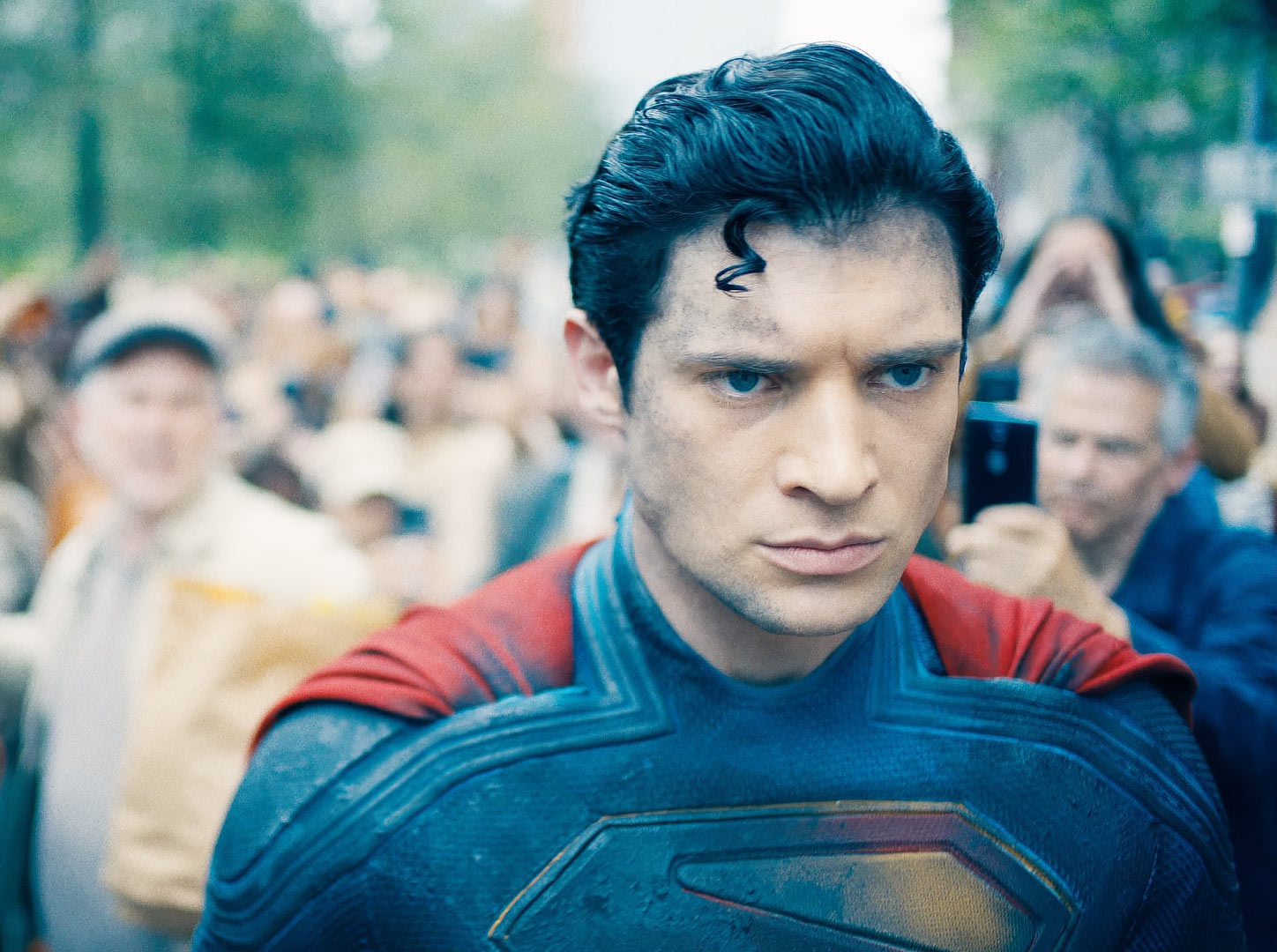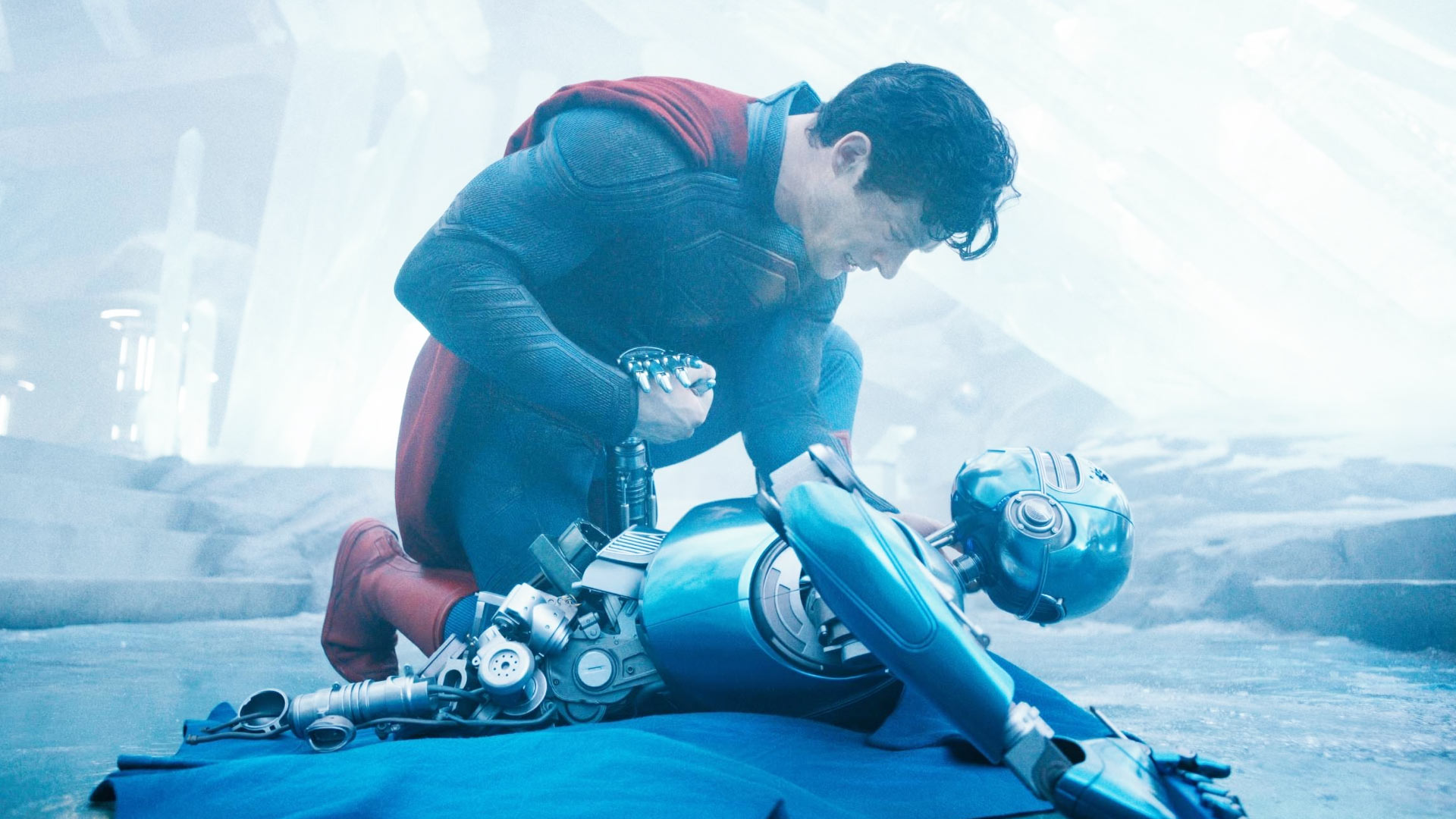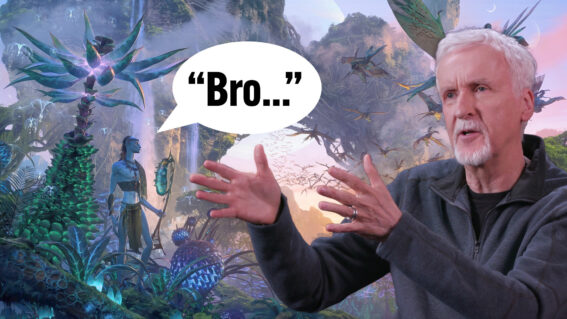Firebrand or flag-waver? The politics of James Gunn’s Superman
James Gunn’s new superhero movie flirts with big ideas, then treats moral ambiguity as if it’s kryptonite.

In his new Superman movie, James Gunn obviously wanted to say something interesting about morality and politics in an ideologically fraught world. But the superhero genre is a padded cell and the director is like an inmate, screaming to be heard, nothing coming through those thick walls.
Zack Snyder’s 2016 blockbuster Batman v Superman: Dawn of Justice is far from a great movie, but it does a better job painting a world where every act—in the context of superhero intervention—is political. The film’s best line comes from Holly Hunter’s Senator Finch, who, on a mission to interrogate Superman’s powers, declares that “in a democracy, good is a conversation—not a unilateral decision.”
Black and white in a world of greys
Instead of participating in this discussion, acknowledging the subjective nature of a world where one person’s “terrorist” is another’s “freedom fighter,” Gunn runs in the other direction, towards binary right/wrong definitions. He indulges in the familiar fantasy that it’s in humanity’s best interest to entrust our futures to a privileged few—the same sentiment exploited in western political campaigns, when we’re told one person has the power to save us, or make X and Y great again, casting the rest of the population as helpless Lemmings following their lead.
This is not some far-out, hoity-toity reading sent down from the ivory tower, unnecessarily complicating popcorn entertainment. It’s a direct response to Superman’s themes; the terms Gunn set for himself. In order to distance the film’s politics from our reality, the writer/director invents two countries. The fictitious (but vaguely Ukraine-adjacent) Jarhanpur is attacked by the also fictitious (but vaguely Russia-adjacent) Boravia. The Man of Steel saves the former from being taken over by the latter, though troops are still on the border and the threat remains.
Gunn isn’t interested in indulging in moral grey areas. The people behind this potential invasion are pure comic book evil: Boravia’s repugnant leader Vasil Gharkos (Zlatko Burić, bringing Les Patterson vibes) and Superman’s archenemy Lex Luthor (Nicholas Hoult). By closely aligning these characters, making them an inseparable blur of cartoon villainry, Gunn papers over the narrative’s most interesting twist: that Boravia is an ally of America. The protagonist’s actions could therefore be construed as anti-American.
Patriotic bind and political backlash
The famous old motto of the Superman franchise was “truth, justice, and the American way.” This phrase premiered in 1942, in the thick of WWII, and persisted for a long time, with Christopher Reeves’ version of the character proudly delivering those words as a modus operandi to Lois Lane in Richard Donner’s 1978 movie. Times have changed. By god, times have changed. The people currently running the real-world White House are the kind of super-evil villains who’ve been carving up movie screens for eons.
This leaves old Supes and his creators in a bind. Aligning the hero to this sort of scumbaggery would besmirch everything the kind Son of Krypton ever stood for. But casting him as anti-America would be bad for business.
The perverse contemporary discourse we’ve come to expect from right-wing Americans entered the moviesphere last week, when a gaggle of conservatives on Fox News network reacted with horror when Gunn described Superman as an “immigrant.” Which he is, by dictionary definition—not that facts matter anymore. This super-stupid storm in a teacup demonstrated the politically loaded space Gunn had entered—and that wasn’t even in relation to any specific content from the film itself.

When big ideas get stuck in the past
Taking a big swing at the American administration was always unthinkable for a blockbuster superhero movie, with all that cash and IP on the line. But there were other targets Gunn could’ve satirised. For instance, meddling billionaires like Elon Musk and the consortium he represents: tech bros as demi-gods, conjuring their own bizarro worlds and pocket universes, with terrible consequences for our own.
But here, especially compared to Dawn of Justice, Gunn goes backwards, sculpting the Lex Luthor character as an empty repetition of the Luthers of old, as retrograde as the chunky blue typeface in the opening credits. Jesse Eisenberg doesn’t get enough credit for reinvigorating this character in Snyder’s film, making him feel contemptibly contemporary: a whiny, needy, conniving man-child one could easily imagine running an AI company or social media network.
In the age of bots, AI and post-truth, Gunn’s big answer to how social media sentiment is manipulated by dark forces is to return that old gag from The Simpsons, with monkeys banging away on typewriters. In The Simpsons it was funny; here it just feels like more empty noise, bouncing around the padded cell.























